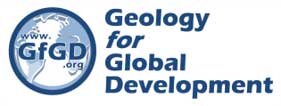GfGD's Research on Geoscience's Role in Water Management Expanded to West Africa
Geology for Global Development (GfGD) extends its research into West Africa, building on findings from East Africa to enhance water resource management.
Building on the pivotal research by Ugandan MSc student Brenda Wagaba, Geology for Global Development (GfGD) is now extending its scope to West Africa. Wagaba's study, supported by GfGD and published recently, has been instrumental in highlighting the crucial role of geological data and expertise in achieving Sustainable Development Goal 6 - clean water and sanitation - in Eastern Africa. This research formed the basis of our briefing note prepared for the UN Water Summit, underscoring the necessity of geological data and expertise for delivering clean water and sanitation in Eastern Africa.
This new initiative in West Africa is spearheaded by two Nigerian MSc students at Hull University supported by Dr Lara Blythe. Their dissertations, rooted in the foundation laid by Wagaba's work, aim to deepen our understanding of NGOs' access to and utilization of geoscience data in water resource management. This alignment showcases GfGD's commitment to enhancing geoscience's impact on sustainable water solutions across diverse African contexts.
Key takeaways from Wagaba's research include:
The necessity of accessible, reliable geological databases, as current ones are often incomplete or outdated.
A heightened need for awareness and planning concerning geological expertise, especially among project funders unaware of its crucial role in successful water project delivery.
Enhanced training and support for local geoscience capacity, with a focus on geological and hydrogeological education to foster local, affordable, and reliable expertise.
In alignment with these findings, GfGD made specific commitments in advance of the UN Water Summit to help address barriers preventing effective Earth science data use in water management.
GfGD's approach, recommended by the study, is to bridge the gap between geologists and NGOs, strengthening the science-policy-practice interface. This collaboration is essential for the effective implementation of Sustainable Development Goal 6, particularly in regions like Eastern and now, West Africa.
As we await insights from the West African project, Clifford Oboarekpe, one of the participating students, reflects on his experience: "My engagement with GfGD was transformative. Through their invaluable support, I delved deep into the intersection of geoscience and sustainable water solutions in West and Central Africa. This experience not only enriched my research but also cultivated a network of experts, empowering me to pursue this passion further. Grateful for the guidance and opportunity to contribute meaningfully."
Stay tuned as we prepare to unveil the key findings from these promising dissertations and continue our journey towards a sustainable future, where access to clean water is a reality for all.

